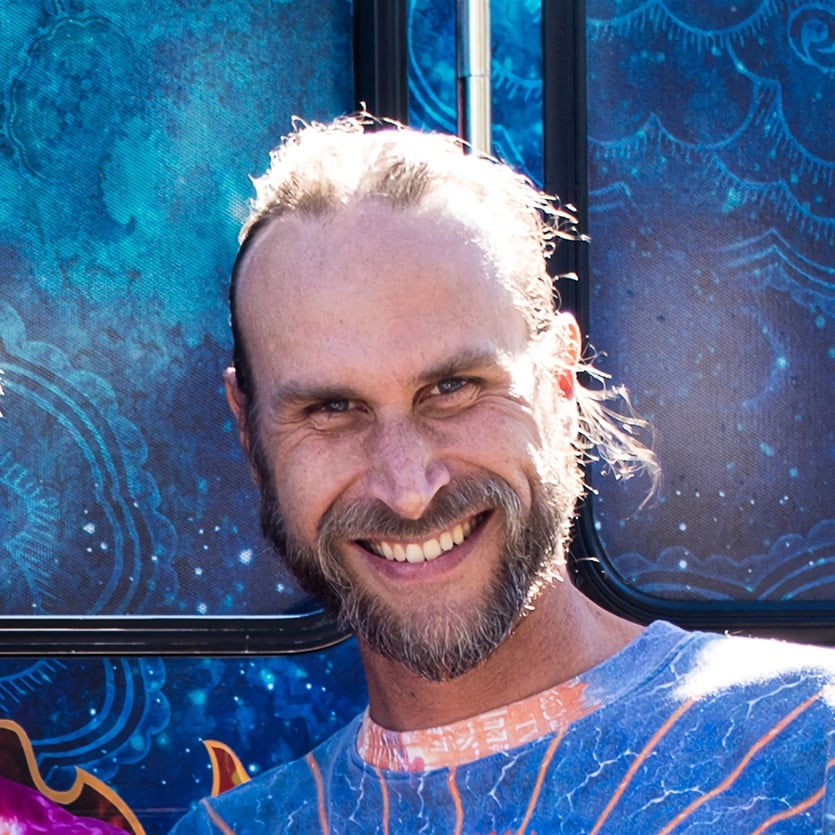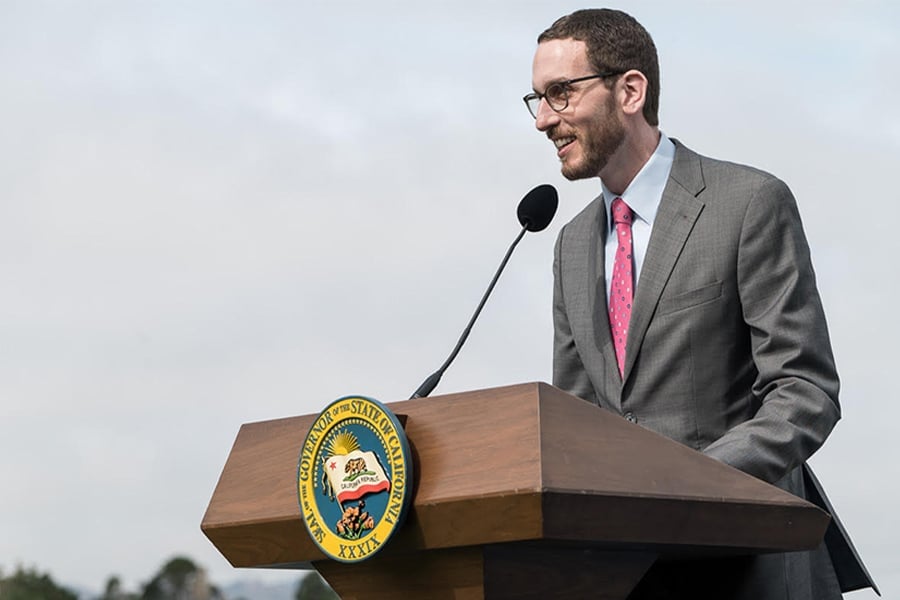In the coming months, California might lead the country in decriminalizing all psychedelics. In February, state Senator Scott Wiener introduced Senate Bill 519, which would put California at the forefront of psychedelic reform by removing all penalties around the use and possession of substances including LSD, MDMA, ibogaine, and non-peyote-derived mescaline for adults 21 and older. In addition to personal use, it would also allow the cultivation of certain natural psychedelics, such as psilocybin mushrooms and DMT-containing plants. Moreover, it would allow adults to freely give psychedelic substances to one another.
The bill’s journey over the past six months has been a tumultuous one, exposing deep rifts in the advocacy community. But the proposal, which passed the state Senate in May, remains a big deal. Only one U.S. state, Oregon, has so sweepingly rejected the drug war, through a pair of voter-approved initiatives last year that decriminalized the possession of all drugs and legalized psilocybin for therapeutic use.
To many who have a stake in the future psychedelic movement—not just advocates but also entrepreneurs and investors waiting in the wings—California represents something more.
“Oregon was huge, but California is just a much bigger and more influential state in many ways as far as national impact,” said David Bronner, CEO of soap company Dr. Bronner’s, who in recent years has stepped up advocacy around psychedelics, backing the Oregon reforms as well as an initiative that decriminalized certain psychedelics in Washington, D.C.
Bronner is one of a coalition of drug-reform advocates who have worked closely with Wiener’s office to craft SB 519. Among others, stakeholders actively involved in conversations about the bill—what should be included and what the priorities are—have included major names in the national drug reform movement, including the Multidisciplinary Association for Psychedelic Studies (MAPS), Decriminalize Nature, and the Law Enforcement Action Partnership (LEAP).
The groups all say they want to end the War on Drugs, provide safer access to substances they say are already widely available on the illicit market, and allow for the cultural and therapeutic use of substances that hold potential healing value. “The perfect bill would be one that ended the War on Drugs and criminalization of use and supported healing, treatment, and education while maximizing safety and health for all,” said consultant Ben Unger of New Approach PAC, a political action committee that has supported various state-level drug reform measures, including California’s Proposition 64 that legalized cannabis for adults, D.C.’s decriminalization of entheogenic plants and fungi (Initiative 81), and Oregon’s legal psilocybin law (Measure 109).
Trying to agree on how precisely to achieve those goals, however, has led to compromise and even infighting among advocates as the bill has made its way through the legislature. It has also pushed the coalition to be intentionally vague around some of the bill’s most consequential provisions, which could open the door to an uncertain future.
How to Grow Shrooms Bundle
Take Both of Our Courses and Save $90!
Read: How To Come Out of the Psychedelic Closet
One of the biggest questions around the proposal has been how much of any particular substance someone would be allowed to possess. When it was introduced, SB 519 didn’t specify. Then last month, an Assembly committee amended the bill to add specific limits.
That’s when the long-existing fault lines among advocates emerged. Almost immediately, the group Decriminalize Nature withdrew its support for the bill.
Carlos Plazola, co-founder and chair of the organization, said that while Decriminalize Nature is willing to compromise on some issues, setting limits on plants is a dealbreaker. “The only one we’ll die on the hill for is limits,” he told DoubleBlind, explaining that he sees specified amounts as the first step on a pernicious road to commodification and corporatization. “Our official position is neutral with a request that they park the bill and remove limits for natural plant medicines.”
Parking the bill would extend lawmakers’ consideration of it until next year, during the second half of California’s two-year legislative session. Plazola said he’s confident the group could convince lawmakers to drop the personal-use limits during that time.
Wiener, for his part, is skeptical and doesn’t want to risk his bill losing momentum. “Our goal is to pass this bill this year,” he said, “and to have it signed into law this year.”
Within the swelling psychedelic reform movement, Plazola at Decriminalize Nature has earned a reputation as both an enterprising trailblazer—he led the way on some of the nation’s first municipal decriminalization laws around natural psychedelics and has inspired dozens of local spinoff groups around the country—and as an obstinate ally. Some advocates who’ve worked with him said he often takes a my-way-or-the-highway approach, though they acknowledge he’s gotten results.
Plazola frames the disagreement as one of principle, saying he won’t support a bad bill. “It’s important the public understand what’s happening because we don’t want another cannabis 2.0,” he said, referring to market domination by large, cross-border cannabis companies backed by institutional investors. “Prop. 64 [the bill that legalized adult-use cannabis in California] had a lot of things that were wrong in it, and we’re trying to appreciate those mistakes.”
Plazola and other critics of California’s cannabis legalization law say the proposition and its subsequent rollout has enriched large companies new to the cannabis space while shutting out longtime growers and community networks. Prop. 64 “pretty much locked out the subsistence farmers and subsistence sellers—the legacy people,” Plazola said. “It’s their leadership that got us here. It’s not the medical industry.”
Others advocates are pursuing reform through an alternate route. Decriminalize California, which is separate from Plazola’s group, has drafted a prospective 2022 ballot initiative that would remove penalties around only psilocybin mushrooms and regulate psilocybin sales much like any other agricultural product. “If a person wanted to sell them,” the organization says on a campaign website, “they would need to be a California Registered Business with a California Seller’s permit and grown on land that was eligible for agricultural production and governed by the California Department of Food and Agriculture.”
In the aftermath of the amendment adding limits to SB 519, Plazola has accused a number of other members of the coalition, most specifically Bronner and New Approach PAC, of conspiring to use the bill’s new possession limits as a way to create artificial scarcity of psychedelics.

“Without limits set, people can develop their relationship of abundance with these plants and fungi, individually or in community–growing, gathering, gifting, and sharing them as we might share tomatoes, oranges, or extra honey from the hobbyist’s beehive,” he wrote on the Decriminalize Nature website. “Local economies could emerge if limits are not set much as local food economies have emerged based on food being decriminalized. But with limits proposed to be set, we can anticipate that these abundance models will be under threat.”
In addition to leaving him out of the loop on the amendment, Plazola alleges, Bronner and other advocates “made a deal with Wiener” to omit peyote from the bill so they could profit from investments in peyote-growing land in Southern Texas. “Abundance is a threat to them,” he said.
The allegations from Plazola and Decriminalize Nature have led Bronner, who is also a board member for MAPS, to respond on his soap company blog. In a recent post, he attempted to dispel any concerns that the coalition is attempting to monopolize psychedelics. All the other members of the coalition interviewed for this story flatly denied any plan aimed at profiting from scarcity.
Bronner wrote: “We were informed by Senator Wiener’s office that ‘personal use’ needed to be defined in the bill or we would face hostile amendments in the Assembly’s Health Committee. In the first place, ‘personal use’ didn’t mean unlimited amounts; however, our preference was to leave it undefined for people to make their case with whatever amounts they had. The downside of that approach is the wrong judge could interpret ‘personal use’ in a much more strict way than otherwise. We were told from the beginning there may come a time when we wouldn’t be able to move the bill without defining ‘personal use’ amounts; unfortunately, that time came with the health committee in the Assembly.”
When asked about his stance on commercialization, Plazola replied that Decriminalize Nature wants “plant medicines to be like oranges, tomatoes, herbs, where there’s this relationship at the base—there’s no limit.”
“What we’re advocating for is community-serving, human-based microeconomics to emerge around anything that comes from the ground,” he said.
Others working on the bill stressed that the legislation had always intended to limit possession, whether or not specific gram-weights were included. From its introduction, language specified that individuals could only possess the drugs for personal use.
“Personal use does not mean unlimited. It’s a contradiction,” Bronner said. “There already wasn’t that version Carlos is talking about.”
He rejected Plazola’s claim that the coalition intends to create artificial scarcity, noting that SB 519’s limits are notably higher than the amounts that Oregon decriminalized last year. Under the California proposal, possession limits would be set at 2 grams of DMT, 0.01 grams of LSD, 4 grams of MDMA, 4 grams of mescaline, 15 grams of ibogaine, and 4 ounces of psilocybin or psilocybin mushrooms (or 2 grams each of the compounds themselves). Moreover, the bill would allow cultivation and transportation of “any spores or mycelium capable of producing” psychedelic mushrooms, as well as gifting. (Currently, California is one of three states where psilocybin spores are illegal.)
How to Grow Shrooms Bundle
Take Both of Our Courses and Save $90!
“It makes no sense,” Bronner said of Plazola’s accusation. “What scarcity?”
While Bronner acknowledged that “personality types that are going to take on the machine tend to be strong personalities,” he called Plazola’s recent personal attacks on him, MAPS, and other members of the coalition unfortunate.
“I would love for there to be peace,” he said. “Shouldn’t a movement that’s supposed to be about raising consciousness conduct itself on a higher vibration?”
Ismail Lourido Ali, the acting director of policy and advocacy for MAPS, said that although his group initially opposed specific limits, it was widely understood among the group that they would probably be necessary to win lawmakers’ support.
“Everybody knew from the very beginning that it was very, very unlikely that we were going to get through without eventually adding in some sort of personal use limits,” Ali said. “There was no version of reality in which not having limits meant unlimited production amounts.”
“It’s true that we—we being MAPS, my team—drafted the recommendations, or the limits,” he added. But that was because Assembly lawmakers “basically told us that they were looking at the Oregon limits [decriminalized under Measure 110], and in our mind, the 110 limits were comically low.” So they offered far higher alternatives. “They’re not low,” Ali said.
Decriminalize Nature has argued that setting any possession limit “is just a creative way to say when law enforcement can arrest you.” Ali responded that set limits actually offer more protection from arrest than unspecified personal use amounts would.
“Let’s say we went forward without limits,” he said. “Cops could and would still arrest people for distribution.” Authorities would merely argue that the amount of a drug someone has in their possession exceeded what’s necessary for personal use. Under the amended bill, by contrast, individuals cannot be charged for distribution so long as they have less than the legal limit, Ali said.
Those who still support the bill say the addition of personal use limits was an imperfect but necessary compromise to keep the measure moving forward. It’s one of a handful of changes adopted in the Assembly in the name of political pragmatism. Others included removing ketamine from the list of allowed substances (some lawmakers cited concerns it would be used as a date-rape drug) and removing record-sealing and resentencing provisions for people with past psychedelics convictions, which Weiner said would have generated “a huge price tag.”
“Our position is that it is an imperfect but important incremental step toward the kind of policy changes we’d like to see,” Ali said, explaining that MAPS would rather see the legislation decriminalize all drugs, provide automatic expungement of past offenses, and pour millions of dollars into services like education, treatment, and crisis response services.
While he acknowledged that, broadly speaking, corporatization or monopolization of psychedelics are valid worries, he’s also frustrated that conflict within the coalition has distracted from the shared interests of its members.
Ali said he supported Decriminalize Nature early on and still supports their underlying goals, adding: “You know the phrase that Decriminalize Nature uses, ‘grow, gather, gift’? I came up with that phrase.” The organization uses the tagline regularly to encapsulate its core conviction that naturally occuring substances belong to everybody and shouldn’t be corporatized or confined merely to prescription medicine.
Ali worries that the infighting among generally like-minded advocates draws valid scrutiny away from companies that are already building businesses around psychedelics legalization and medicalization. “Going after MAPS and David Bronner is like, just the best news for fuckin’ Compass and Field Trip and all these other big companies,” he said, referring to two leading for-profit health care companies formed around psychedelics. Compass Pathways, headquartered in the U.K., began trading on Nasdaq late last year.
Read: How Tripping Can Help Us Reimagine Capitalism Ahead of Psychedelic Commercialization
While the coalition of SB 519’s supporters have met some controversies with hard decisions, they’ve addressed others—for now—by leaving details open-ended.
For all the drama over personal possession limits, for example, there’s a major potential loophole: Adults 21 and older are free to give the substances to other adults, and individuals who facilitate group psychedelic use—for example for community-based services, ceremonies, or counseling—can possess the maximum allowable amount for each person in the group.
What’s more, while individuals 21 and older can’t give away or administer the substances for financial gain, they’re able to charge “reasonable fees for counseling, spiritual guidance, or related services.” It’s not clear from a plain reading of the bill what such services might include.
Wiener, who consistently calls SB 519 a “decriminalization bill” despite it effectively legalizing possession and use, told DoubleBlind the language is aimed at bringing drugs in California out of the shadows. “It’s a decrim bill because all it does is say we’re no longer going to arrest or prosecute people,” the senator said. “That’s decriminalization. Legalization is, in my opinion, what we did in 2016 with cannabis.” In other words, Prop 64 set up an entire system for commerce around cannabis.
Asked how the bill would regulate potential businesses or other services that might emerge, Wiener responded: “Honestly, we left it intentionally broad and open-ended. We want to hear back from the experts on what future steps might be.”
The bill would assemble a state Department of Health working group to develop and recommend regulations around the drugs, which would be due by 2024. “Do we want to create a therapist certification,” Wiener gave as a possible example, “so that people can get certified as a psychedelic therapist?” A report on possible education campaigns and available public health and safety research, meanwhile, would be due Jan.1, 2023.
“It’s totally legal for someone to advocate for a more legalization, regulatory model, but that’s not what this bill is about,” Wiener insisted. “This bill is about not arresting and prosecuting people.”
He downplayed the idea SB 519 would lead to a vast, unregulated gray-market economy, as California’s early medical marijuana laws did. “I’m not convinced that’s going to happen,” he said. “Is that possible? Sure, anything is possible. People push the boundaries of the law.”
If the gradual end to prohibition is any indication, however, gray-market psychedelics services are more than possible, they’re unavoidable. A few already operate in Oakland, just across the San Francisco Bay from Wiener’s district. Zide Door, which was raided by police last year, operates as a church that recognizes psilocybin as a sacrament.
In other jurisdictions where cannabis is legal but retail sales are unavailable—such as Massachusetts before adult-use stores opened or Washington, D.C., where stores are still banned—businesses have used social sharing provisions as quasi-legal workarounds. Services sprang up offering donation-based deliveries or offering free cannabis with the purchase of an overpriced item like juice or a t-shirt.
In some areas, like California during the 2000s, gray-market cannabis businesses flourished even as many local governments tried to close them, due in large part to confusion over what exactly the state’s marijuana laws allowed. Eventually, some municipalities gave up on drawn-out court battles and grandfathered the businesses into legal existence.
Could SB 519 be the start of a similar rush around psychedelics?
“This is the first I’m hearing about that concern,” Wiener said.
“The goal of SB 519 is to stop making criminals out of people for personal and group-supported use of psychedelics. It also sets up the potential for a regulated therapeutic program,” said Unger of New Approach PAC. “We’ve never considered nor aimed for a commercial model.”
Others, however, acknowledge that psychedelics-related businesses may indeed spring up.
“In D.C., you can buy a $40 pizza that’s got some weed,” Bronner agreed. If similar models emerged around psychedelics in California, he added, “You’d probably be buying whatever service, it’d be all coded.”
“I think that’s a really astute observation, and I would not pretend that this would not create some sort of economy,” said Ali at MAPS. Then he added, “The idea that there isn’t already an economy around these substances to me is really naive. We all know that they are already being bought and sold underground.”
“I wish we didn’t have to downplay it or run away from it,” he continued. “To me, it’s just bringing light to something that’s occurring, which would actually allow us to deal with problems when they emerge.”
In addition to emerging therapeutic uses around some of the substances—including end-of-life care, mental health, and treatment of substance use disorders—legalization would also reduce harm and ensure more transparent practices around drug use and sales, Ali argued. “Whether it’s fraud, whether it’s sexual assault, whether it’s adulteration—none of those things can be handled while the underlying substance is illegal.”
Joseph Holcomb Adams, a bioethicist and educator (who has written for DoubleBlind), wants the bill to go further. Worried that vague rules about social sharing and group services could put more vulnerable users at risk, he’s asked lawmakers to delay the sharing provisions of the bill until regulations are put in place.
“Ideally we would just remove all sharing, giving, facilitated/supported use from it until the working group develops regulations,” he described. “The second best option is you could basically leave the stuff in but add just a tremendous amount of rules and restrictions.” Even gifting between adults, he said, should be forbidden until regulations are developed.
“I am very, very, very pro-legalization of psychedelics and entactogens,” Adams said. But at the same time, he worries lawmakers don’t understand how potent the substances—and their associated experiences—can be. “They almost think these drugs are like cannabis but a little bit more.”
“These drugs are incapacitating, in the sense that you could not make medical decisions, you could not give consent,” he said. “Psychedelic drugs induce extreme suggestibility in people, which leaves people very, very vulnerable to all sorts of even subtle influences.”
From a bioethics perspective, all of that “basically means that participating leaves the client-participant or patient in a place where they’re vulnerable,” for example to manipulation, indoctrination, or sexual assault. “I really do believe in cognitive liberty, but here’s where I draw the line.”
More action on the bill is expected in the coming month. It’s currently before the Assembly Appropriations Committee, which Wiener said is expected to act on the bill by the end of August. If it clears the committee, it next proceeds to the full Assembly floor, where it would need to receive a vote by Sept. 10 or be carried over to next year, as Plazola at Decriminalize Nature has called for. Amendments could come at any time, but any changes made in the Assembly still need the Senate’s agreement.
“As much progress as we’ve made in passing this bill so far, there’s a lot remaining—a lot of opportunities for the bill to stall or die or pass,” Wiener said.
As for sometimes messy feuds that have emerged around SB 519, Ali at MAPS said he’s not surprised. “All of the concerns that are being brought up are legitimate concerns. To me, this is really about different theories of change that are clashing.”
Interested in having a psychedelic experience, but don't know where to start? Get our definitive guide on trusted legal retreat centers, clinical trials, therapists, and more.



